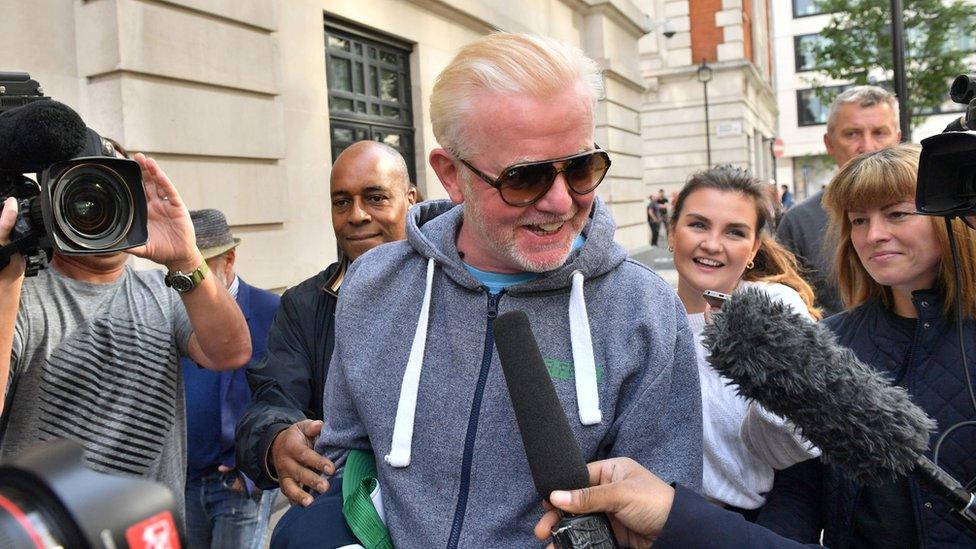I was wrong on BBC 'poachers' charter'
- Published
Journalists often screw up. They less often admit it. But owning up when you make errors of fact or judgement makes it more likely that you'll be trusted the rest of the time.
When the BBC was required by the government to publish the salaries of broadcasters paid more than £150,000, as part of its new Charter, it resisted, using two arguments. First, that the move would prove inflationary; second, that it would amount to a "Poachers' Charter."
In the first year or so after publication of this salary data, it didn't seem that many, if any, big names had been poached. Therefore, in my reporting on the issue for the BBC's bulletins, I criticised the BBC for using a bad argument. In several interviews with Tony Hall, the Director-General, I accused him of being wrong on the issue.

Chris Evans has said money was not a factor in his decision to leave BBC Radio 2 at the end of the year and return to Virgin Radio.
In fact, I was wrong. In the past few months Eddie Mair has left the BBC for LBC, where he started a drivetime show on Monday, and Chris Evans has been poached by Virgin Radio, as part of Rupert Murdoch and Rebekah Brooks' heavy investment in top talent for talk radio.
Based on conversations with several well-placed sources, it is reasonable to conclude that disclosure of top salaries was a significant factor in the BBC losing two of its biggest stars in radio.
The "Poachers' Charter" argument turns out to have several strands. The connotation of that phrase is that, by making the specific salary of various individuals known to rivals, those rivals are better equipped to swoop with offers too good to refuse.
If they're doing their job properly, rivals in any sector should always have means to find out how much desirable talent elsewhere get paid. Publication of salaries, so this argument goes, just made it easier for the BBC's rivals, in case they were feeling lazy.
In fact, the publication of salaries leads to poaching for other reasons too. It can sour relations between broadcasters and those who have to manage them, or at least give rise to tension. And, though this is common sense, some people really don't like the annual exposure of their pay, especially if they're near the top of the list.
Of course, I do not say that salary disclosure is the only reason for these departures (both Mair and Evans have talked about seeking fresh challenges, for instance). Nor am I taking a position on whether salary disclosures, or transparency generally, are laudable. (Obviously there are strong, and familiar, arguments in favour of publication, from exposure of injustice to the fact that it is public money.)
I only say that it is a significant factor - and to that extent my earlier position was a bad call.
By the way, John Maynard Keynes probably never said, external "When the facts change, I change my mind. What do you do, sir?". But the American economist Paul Samuelson did reportedly say "When my information changes, I alter my conclusions."
My information has changed, and I have altered my conclusions.
If you're interested in issues such as these, please follow me on Twitter, external or Facebook, external; and also please subscribe to The Media Show podcast, external from Radio 4. I'm grateful for all constructive feedback. Thanks.